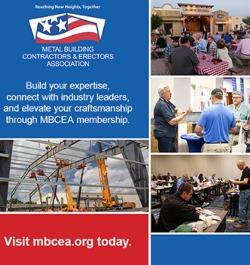UP TO THE MINUTE
Why Every Contractor Should Create a Qualifier Contingency Plan

By Trent Cotney.
Understand what a qualifier is and the importance of developing a qualifier contingency plan.
Obtaining a contractor’s license can be a complex, patience-testing process, which is why so many large construction companies are utilizing several qualifiers to maintain licensure across multi-state territories. There’s no law demanding that contractors only work in their home state, which is why industry leaders can be found working on projects all throughout the United States and internationally.
What is a qualifier?
A qualifier is an entity that represents the work of a business. In the construction industry, this simply means a licensed contractor that can perform work in a state under the “umbrella” of your business. This is necessary because only individuals – not companies – can acquire a contractor’s license. Therefore, companies that want to expand their operations into multiple states must have a qualifier in each state to ensure that they are working legally.
The problem with qualifiers
According to Construction Business Owner, “It’s not uncommon for a company to have a single qualifier in a dozen states or more.” This can create pervasive issues for a firm if a qualifier decides to pack up and leave. Typically, it will have one or two months to select a licensed replacement. If a licensed professional isn’t available, it may need to elect a new individual from the business to obtain a contractor’s license. Unfortunately, this process can be time-consuming, which means a business could lose out on valuable contracting opportunities in the meantime.
The solution: A qualifier contingency plan
To help minimize the chaos of a departing qualifier, business owners can employ a qualifier contingency plan — a simple, relatively inexpensive solution that can help protect business interests. A qualifier contingency plan will help businesses build a list of “next-in-line” qualifiers.
Consider multistate licensing needs
Before a business can craft a qualifier contingency plan, it must reflect on the states in which it is currently operating and those that it may expand to in the future. Start obtaining the proper licensing two years before breaking ground on any projects in a new state. During that time, research licensing classifications, requirements and timelines. Some states also have licensing reciprocity agreements that can be utilized to grow a business’s overall territory while bypassing certain licensing requirements.
Audit active qualifiers
With a clearer picture of qualifier needs, next take a look at the business’s existing team of qualifiers. Determine which states are most vulnerable if a qualifier leaves. Then decide which members of the business team can step up if needed. This may require the company to pay for another employee to obtain a contractor’s license, and not every employee is cut out for life as a contractor, so these individuals must be chosen wisely. Experienced construction professionals are usually a safe bet. Ideally, a business should have at least two backup qualifiers for every single state.
Address any weaknesses
Begin to train backups for other states that currently have qualifiers but not backups. The key here is handling each state individually, since construction law varies from state to state.
Develop a qualifier contingency plan
Once the above steps are complete, it’s time to create the qualifier contingency plan. It should be based on the results of your evaluation, addressing the following:
- Strength of backups
- Qualifications of backups (try to maintain two backups per state)
- Employees with “qualifier potential”
- Steps for preparing new backups
- Size of territories relative to number of qualifiers
- Clearly outlined plan for dealing with absent qualifiers
When a qualifier leaves, it’s like a boat with a leak that needs to be plugged. If a business already has the perfect piece in place to plug the leak, it will continue to float and its journey will be uninterrupted.
About Trent Cotney
Trent Cotney is a partner and Construction Practice Group Leader at the law firm of Adams and Reese LLP and NRCA General Counsel. For more information, reach out to Trent at trent.cotney@arlaw.com.
The information contained in this article is for general educational information only. This information does not constitute legal advice, is not intended to constitute legal advice, nor should it be relied upon as legal advice for your specific factual pattern or situation.



















Comments
Leave a Reply
Have an account? Login to leave a comment!
Sign In